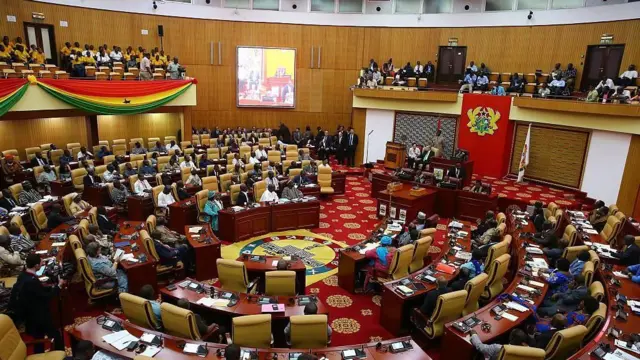
Parliamentary Network Africa (PNAfrica) has expressed deep concern over the ongoing impasse in Ghana’s Parliament, which has led to two indefinite adjournments and a failure to carry out legislative duties.
The group has called for immediate action to resolve the deadlock, which it says is damaging the country’s governance and wasting public resources.
The deadlock, which has left Ghana’s Parliament unable to convene since the adjournment of sittings on 7th November, follows an earlier suspension on 22nd October.
PNAfrica warned that this failure to conduct legislative business not only disrupts the functioning of the state but also places an unnecessary financial burden on the public purse.
The Parliament is currently operating from temporary rented facilities due to ongoing renovations at the main chamber, adding further costs to an already strained national budget.
“This prolonged deadlock is both a disservice to the Ghanaian people and an avoidable financial strain,” PNAfrica said in a statement,adding “The inability of Parliament to fulfill its core responsibilities undermines the very essence of democratic governance.”
The deadlock is largely the result of internal disagreements between the National Democratic Congress (NDC) and New Patriotic Party (NPP) factions in Parliament, preventing productive dialogue on critical national issues.
PNAfrica called on both sides to put the national interest first, urging them to set aside partisan concerns in favour of resolving the crisis.
The group also called on Rt. Hon. Alban Sumana Bagbin, Speaker of Parliament, to take the lead in bringing both factions together.
PNAfrica encouraged Bagbin, with his years of parliamentary experience, to facilitate dialogue and find common ground, particularly on the contentious issue of Article 97(1)(g) and (h) of the Constitution, which is currently awaiting interpretation by the Supreme Court.
“There must be a clear and swift resolution to this impasse,” PNAfrica said.
“We urge the Speaker to use his position to push for meaningful negotiations and a compromise that allows Parliament to resume its work while awaiting the Court’s interpretation of these legal provisions.”
PNAfrica also suggested that if internal negotiations fail, external mediation might be necessary to break the deadlock.
The group proposed that the Council of State, Ghana’s key advisory body, be brought in to offer impartial guidance and help create a framework for resolving the dispute.
PNAfrica called on the leadership of both the NPP and NDC Caucuses – represented by Mr. Alexander Kwamena Afenyo Markin and Dr. Cassiel Ato Forson – to cooperate with the Speaker and any third-party institutions involved in the mediation process.
“It is crucial that both parties work together for the good of the country. The stakes are too high for further delay,” PNAfrica said.
“The public cannot afford more unnecessary adjournments, and Parliament’s role as the legislative arm of government must not be held hostage to internal disputes.”
The group stressed that Parliament’s failure to resolve its internal disagreements is more than just a procedural issue; it has real consequences for the functioning of the state, including delays in important legislation and policy implementation.
Reporting by Adama Makasuba










Recent Comments